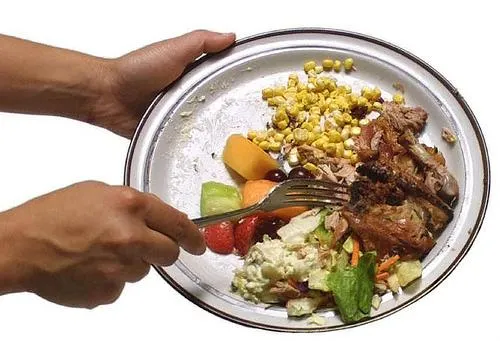This report by the Johns Hopkins Center for a Livable Future highlights the need to reduce livestock farming and food waste if climate change is to be addressed, and the relative absence of these important mitigation strategies from recent climate talks (e.g. COP21 in Paris).

The authors review current literature showing that, at present, livestock production accounts for 14.5% of global human greenhouse gas (GHG) emissions, with 39% of this attributable to enteric fermentation (the digestive process in ruminants such as cattle and sheep). The authors consider emission and mitigation scenarios for 2050 from five studies that compare a “business as usual” scenario (in which meat and dairy intake continues to rise with increasing GDP and population size) with various meat reduction and yield increase scenarios. They show that business-as-usual meat consumption would, by itself (i.e. even without non-agricultural sources of GHG emissions), cause global emissions to nearly exceed the 2050 emissions threshold for limiting warming to 2°C. By contrast healthy (reduced meat) diets combined with waste reduction and higher yields offer the best chance of mitigating agricultural emissions.
The authors conclude by recommending public awareness campaigns and policy incentives to reduce consumption of and demand for meat products, in particular among populations with the highest per capita meat consumption. They also recommend the creation of ambitious waste reduction goals and implementation plans targeted at the food system stage associated with the highest food waste (i.e. consumer stage in high income countries; production stage in low income countries).
Abstract
This report, prepared in advance of the United Nations Conference of the Parties 21 (COP21) in Paris, reviews the scientific literature on the roles of reducing animal product consumption and wasted food in meeting climate change mitigation targets.
Key findings
- If global trends in meat and dairy intake continue, global mean temperature rise will more than likely exceed 2° C, even with dramatic emissions reductions across non‐agricultural sectors.
- Immediate and substantial reductions in wasted food and meat and dairy intake, particularly ruminant meat (e.g., beef and lamb), are imperative to mitigating catastrophic climate change.
- The urgency of these interventions is not represented in negotiations for climate change mitigation.
Citation
Kim, B., Neff, R., Santo, R., and Vigorito, J. (2015). The Importance of Reducing Animal Product Consumption and Wasted Food in Mitigating Catastrophic Climate Change. Johns Hopkins Center for a Livable Future
Read the full report here. You can read more related stories in our Research Categories on Food waste, climate change: mitigation, GHG impacts and mitigation, meat, eggs and alternatives, food waste, dairy and alternatives, consumption and diets and sustainable healthy diets.




Comments (0)